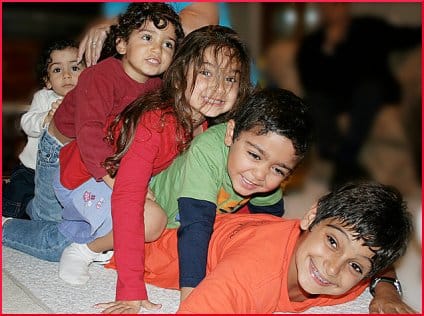
An Ohio State University study, conducted several years ago but only recently published, found that a solid household routine can be helpful in preventing childhood obesity. Furthermore, other studies have found that regular family mealtimes can improve a child’s grades at school, perhaps because they have better attention spans. Researchers have also concluded that this one routine alone can reduce the risk of later abuse of drugs and alcohol.
As for the numbers, this research encompassed 8,500 four-year-olds and their families, which may be why it took so long to analyze. Of those children, 18% qualified as obese.
Three main elements of routine were looked at. Does the family eat their evening meal together at least six times a week? Do the kids have a regular bedtime and get enough sleep? Is the child’s time with TV and other types of electronic screens limited?
The bottom line, as reported by “The Kids’ Doctor,” is:
When looked at in terms of those children who were exposed to all 3 routines, the prevalence of obesity was 14%, while those children not exposed to any of the 3 routines had a prevalence rate for obesity of 24.5%. The research also found that the number of household routines was a predicator of obesity and that by adding a routine, there was a 17% reduction in odds for obesity as a new routine was added.
The writer points out that the cost of establishing good habits in the family setting is zero dollars.
More ideas
In “How to be your kids’ fitness mentor,” the writer follows the tried-and-true recipe for parents: Kids need an active lifestyle and good nutrition. And there is nothing wrong with either of those precepts, except that, as Childhood Obesity News has so often pointed out, they just don’t seem to be doing the trick. Even when parents are extremely conscientious, somehow, often, things simply don’t work out as predicted.
As Childhood Obesity News has also often pointed out, there are other factors, usually emotion-based, like compulsive eating, and body-focused repetitive behaviors, and food addiction. Once they enter the picture, all bets are off. But let’s take a look at these suggestions anyway, because they certainly can’t hurt.
The first is to join a fitness center that has classes for children as well as adults. The second is to pursue fitness goals together, as a family. The writer quotes a Michigan mother named Nina Hamza, and quotes her enthusiastic endorsement of this idea:
My kids loved that I asked their advice on things; about how to breathe easier or what to do if you get a leg cramp. Also, I appreciated their hard work more. I was in awe of their ability as I was learning and they were encouraged that I was so impressed by them.
The third suggestion — and there’s nothing intrinsically wrong with this one either — is to find physically active things for children to do throughout the year. It would seem logical that kids would be more active in the summer, yet apparently too often they spend a lot of time at what the writer calls “lump camp” — in an inert heap on the sofa. So, figure out ways to keep them moving.
Next time, we will look at the dark side of parental activism.
Your responses and feedback are welcome!
Source: “Family Routines Can Reduce Childhood Obesity,” WFAA.com, 06/21/13
Source: “How to be your kids’ fitness mentor,” Jsonline.com, 04/24/13
Image by Sherif Salama.

 FAQs and Media Requests:
FAQs and Media Requests: 











